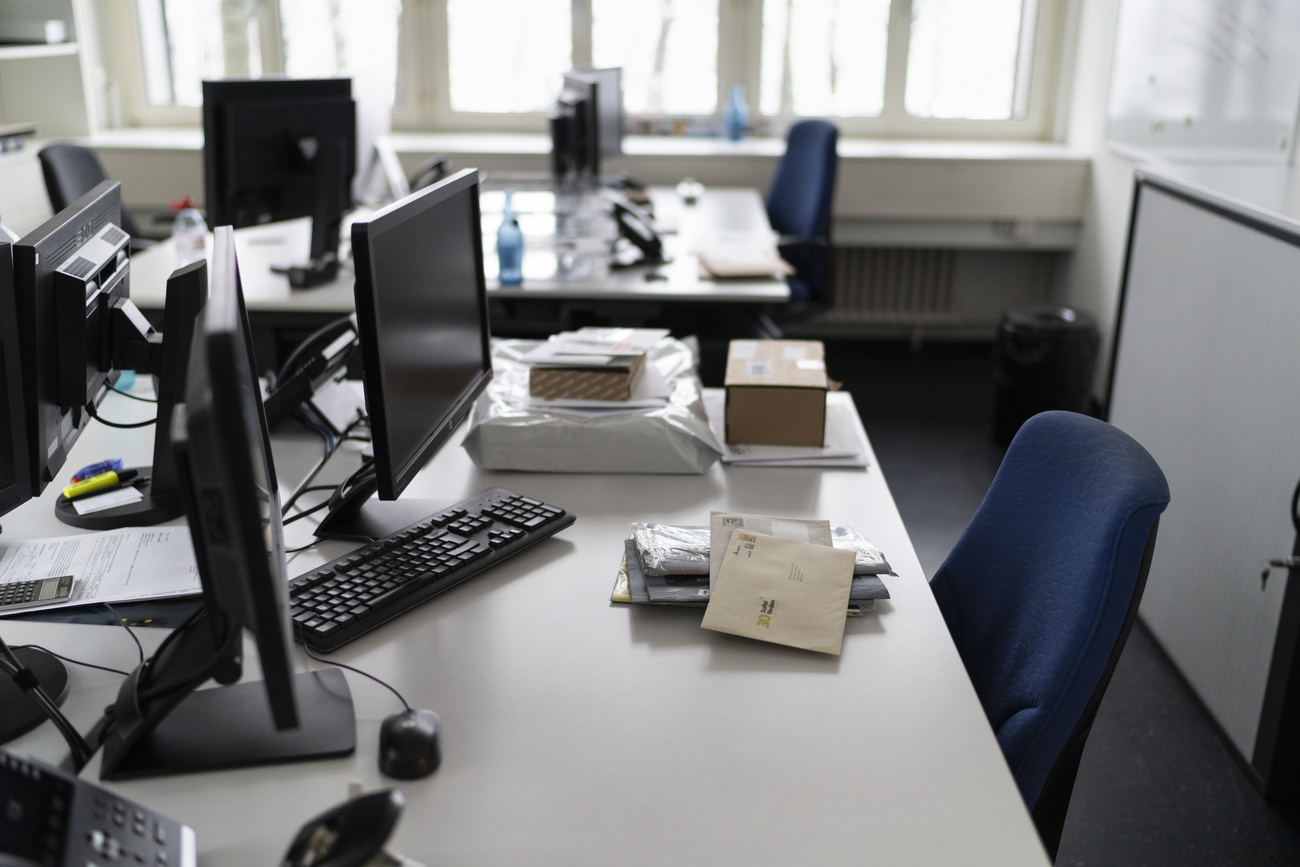Covid-19: More than 40,000 catering jobs lost in 2020

More than 40,000 people in the Swiss hospitality and catering industry lost their jobs last year owing to closures triggered by the Covid-19 pandemic. Restaurants that rely on business tourism were hit particularly hard.
What’s more, the Swiss State Secretariat for Economic Affairs (SECO) had not included the effects of the second lockdown in its figures, said Casimir Platzer, president of the umbrella organisation Gastrosuisse, on Friday.
Since SECO’s calculation, at least 10,000 more jobs have probably been lost, he added.
A survey by Gastrosuisse at the beginning of March had shown that two-thirds of the roughly 3,500 members questioned said they had financial problems. Nearly 20% said they would be shut indefinitely.
Another survey in April showed that the number of affected businesses had decreased. Platzer said this could be connected to hardship payments disbursed in the interim “We were expecting a 10-15% drop in payroll. We probably weren’t far off with that.”
He said hospitality businesses that relied on corporate tourism or events had suffered the most. Destinations geared to visitors from far away had also been hit. Some mountain destinations as well as lakeside and rural areas had fared less badly.
Global problem
While Swiss businesses are suffering, this is a global problem. “At no point in history has such an incident occurred where businesses in almost 200 countries have been paralysed due to a common factor. […] The landscape of hospitality could possibly change forever,” according to an article by Lausanne-based EHL Group last year looking at the impact of Covid-19 on the hospitality workforceExternal link.
The article said the hospitality industry in India was likely to be hit particularly hard, with a majority of people in the sector losing their jobs.
“Disruptions to production, initially in Asia, have now spread to supply chains across the world. […] Sustaining business operations will be particularly difficult for small and medium enterprises,” it said.
“Overall, it may be that the nature of hotels and restaurants will change to leaner and more efficient operations, where a balance between smart and skilled labour is sought after.”
Swiss restrictions
On Wednesday the government announced further plans to ease Covid-19 restrictions and let the country return to a degree of normality.

More
Switzerland seeks return to normality with eased Covid rules
It said that from May 31 restaurants would be allowed to serve groups of up to four people at indoor tables provided they follow strict hygiene and tracing conditions. Wellness centres and spas would also be able to re-open, albeit with limited capacity.
Bars and restaurants were closed just before Christmas. In mid-March, the government postponed a decision to relax restrictions, saying there was a risk of infections spiralling out of control. Since April 19 restaurants and bars have been allowed to serve customers in outdoor seating areas.

More
Coronavirus: the situation in Switzerland

In compliance with the JTI standards
More: SWI swissinfo.ch certified by the Journalism Trust Initiative











You can find an overview of ongoing debates with our journalists here . Please join us!
If you want to start a conversation about a topic raised in this article or want to report factual errors, email us at english@swissinfo.ch.